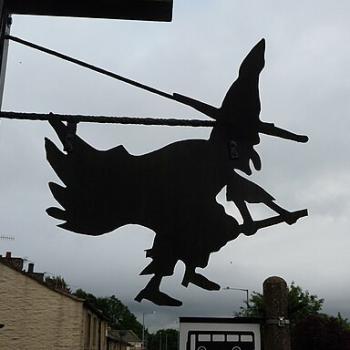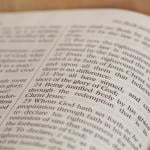Is the “s” in gospel for secular?
Following my perusal of “I Slept in Diddy’s House,” an interview with Rod Long–former Diddy producer turned worship pastor of RIG Global Church, my suspicions of the gospel industry’s satanic strands were solidified. During the interview, Long recounts his struggles with producing worldly music and maintaining his spirituality. Although his relationship with Diddy was peripheral, Long repeatedly encounters ethereal instances directly connected to parties he had never attended. After profound introspection, he walks away from a promising music career and Diddy. Even under life threatening circumstances, Long embraces his decision.
Interviewer Prophet Arayomi asks Long if gospel’s underbelly mirrors mainstream music practices. Long answers in the affirmative and expounds by emphasizing secular sound is seeping in, and similar satanic rituals occur… subsequently erasing the Holy Spirit from gospel’s blueprint. I might add, with godly worship redirected, false altars unwittingly arise amongst church sanctuaries throughout the body of Christ.
While living in Los Angeles, I met a woman with ties to the gospel industry. She is a recording artist claiming connections with gospel A-listers. Anyway, she was quite spooky, but I thought I’d pursue my query. After years of rumors that industry artists (gospel included) spoke satanic incantations over their music to bolster sales, this woman affirmed the claim. She added that some of the most popular gospel artists practice witchcraft. Like secular artists, they draw formidability from enchantments.
The Diddies of gospel?
Topping the list is Kirk Franklin. For years, now, social media has been buzzing with accusations that the Kirk Franklin I grew up on is no more. I haven’t heard any clone stories, yet, but he might as well be one according to keyboard activists. Many are saying that his recent gesticulations on stage are less than appropriate. Honestly, how can gyrating worship YHWH? Earlier images of Franklin continue of to surface with him lapping TD Jakes on stage in a church setting. Although Franklin is known for pushing gospel to new heights by inviting R&B singers to partner in album collaborations, his partnerships have always been controversial. He is also renown for laying lyrics over classic R&B tunes. During the 90’s and early 2000’s the church played along to appease the youth. However, those youths are now grownups and find much of Kirk’s behavior questionable. Perhaps, the Re-union Tour will redeem his credibility?

Maverick City Music, a gospel group out of Atlanta, has all eyes on them. Internet prophets are blasting believers for attending MC concerts saying they dabble in the demonic. To compound matters, Maverick City’s South Africa tour reveals an upside down cross in a stained glass window backdrop. Ironically, the group’s tour is accompanied by Kirk Franklin. Both Franklin and Maverick City claim plausible deniability as they were oblivious to the error. Sounds like an attorney stealthily sneaking in commentary for it be stricken from the record. Too late, though, the jury heard it. Even if Kirk and the gang were not privy, it’s too late… we all saw it.
GloRilla, a viral trap artist recently gave her heart to God. Soon after, her debut album drops. However, the controversy begins with the rapper’s Maverick City, Kirk Franklin, Kierra Sheard, and Chandler Moore collab. I get that Maverick City is the new rave, but what if the internet prophets’ claims hold true? More importantly, are her ratchet songs, the ones bookending this singular gospel track, asphyxiating her godly message? Will Kirk Franklin’s desire to work with Glo also be considered a mistake?
Can gospel and secular co-mingle and still worship God?
Although Glo has roots in gospel, will her rebirth truly reflect the God we are created after? Will her signature sound overshadow her newly gained purpose? Will the sound Rod Long mentions in his iconic interview inhibit others from true worship? Yet, I can’t question the Glo-effect without mentioning the Baltimore pastor gone viral for inserting lyrics from Glo’s song Tomorrow into his sermon. Should preachers use secular lyrics to elucidate their sermon? Here’s the phrase he employed: Every day the sun won’t shine, that’s why I love tomorrow. I have a few questions for the minister, because in order to reach this line, there’s approximately three and a half minutes filled with obscenities and unlikely lyrics for the sanctuary. (Don’t even think of watching the video):
- How did he come across this song? Does he listen to rap music for more than research purposes?
- Why was it important to add this in his sermon? Were there no gospel songs available with the same message?
- Was his intent purely to edify the saints, or to go viral? Or, did he feel this was the only way to reach this generation?

Photo by: Payne Memorial AME Church
Then, I studied a photo of Pastor Thomas with a stained glass window behind him showcasing a golden crown neatly arranged atop his head while an ankh hanging from his neck is set midway betwixt two crosses from his preacher’s robe slightly below them. Is he the king of kings? Perhaps, I’m misreading. However, the ankh and the cross of Christ are not equal. The Egyptian ankh known most readily as a symbol in hieroglyphics represents a wizardry tool drawing power from heavenly bodies and earthly elements. The sarcophagus of ancient pharaohs are often depicted with ankhs to demonstrate acuity in the spirit realm. Needless to say, the image fulfills any queries concerning the pastor’s song choice.
I will end by quoting Amos 3:3, “Can two walk together unless they agree?” The answer is No. True gospel worships the Lord through the edification of man’s spirit. Secular music, even the most harmless, entertains… making a person feel good.













